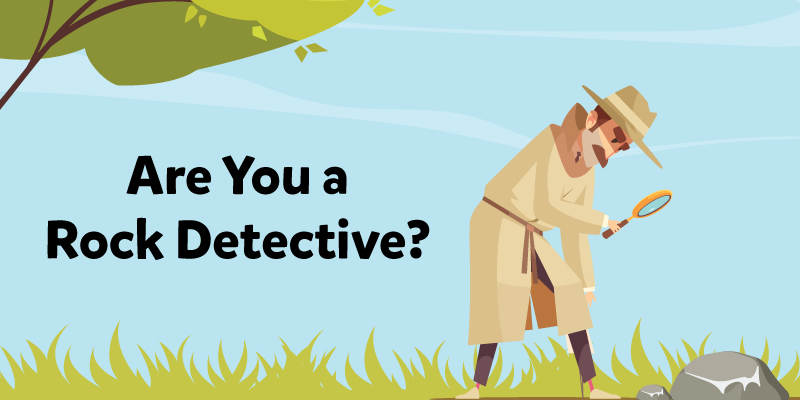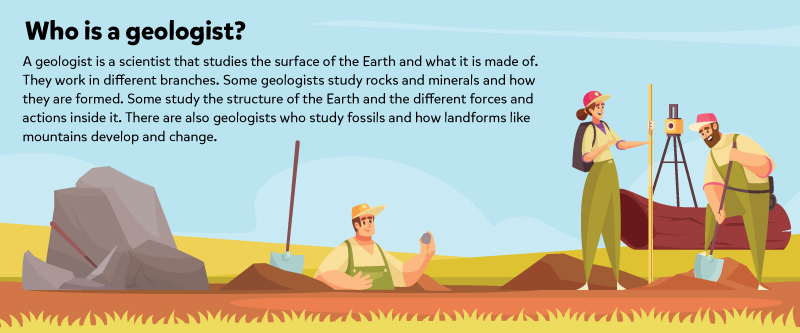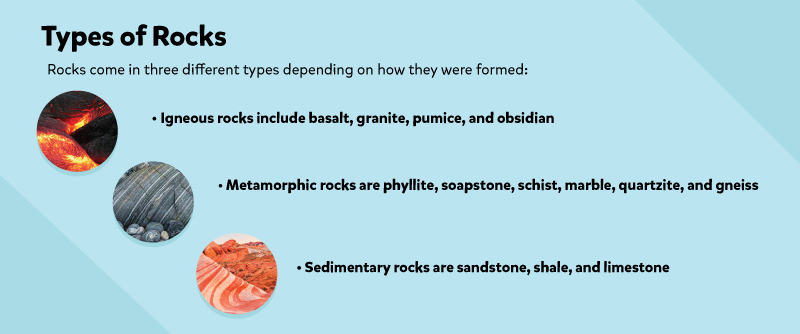
Rocks, pebbles, and stones! From far, they might look dull, but take a closer look at them and they twinkle at you. Each rock holds centuries of mysteries in them and can make you wonder about so many things. For instance – where are they from, how old are they or how long are they gonna stay?
Have rocks fascinated you as a kid? Did the colours, the shiny surface or the vivid shapes attract you? If you like digging in the dirt, then you can be a rockhounder! A rockhounder is an amateur collector of rocks and minerals. You can say rockhounders are more like amateur geologists who just cannot pass by a pretty rock without picking it up for a closer look!


If you like treasure hunts and fancy a cool personal collection, then you can try rockhounding. It is a fun activity that also tells you a lot about the Earth – how it has changed and how it is still changing. And since rocks and minerals are everywhere, you don’t need a lot of equipment to begin a search.

Also Read : Learn to Make Geode Crystals at Home!
Becoming a rockhound is easy (just pick up a rock!), but here are some ways to help you get started with your own collection.
1. Which rock to select
A good rock collection consists of selected, representative, properly labelled specimens. You can base your collection on shape, colour, size, texture, or type. For instance, you can collect all the related rocks from the area you live. You can also look for unusual rocks from the places you visit.
If you are unable to distinguish your rocks, don’t worry. With time, your eyes will be trained to see diagnostic features of rocks (the features by which you can distinguish the rocks).
2. Identification makes it easy!
To identify the rocks you collect, it is important to know the various types of rocks that exist. Here is a quick chart to help you out.

3. Where to find rocks
Your rock collection can begin in your own backyard or neighbourhood. Look for stream beds or other water bodies or areas of erosion which can often reveal unusual rocks.
You can also find unusual rocks in areas where humans have cut into the Earth, like quarries, road cuts, ditches, or natural cliffs and outcrops.
Remember, it is often illegal to collect rocks in parks and national monuments. If you are rock hunting on private property, seek its owner’s permission first.
4. Rock collecting equipment
Rock collecting needs only a handful of equipment to begin with – a short-handled shovel, a good rock hammer, and a pair of gloves. Always wear a pair of safety glasses while hammering rock to keep sharp chips from flying up and damaging your eyes.
5. Housing your rock collection
It is a great idea to sort and label every collection clearly. You can do that by getting a rock collecting kit or by making one of your own.

6. Clearing and caring
The good news is that rocks require little care. You can either rinse them in cold water to remove dirt or gently clean them with an old toothbrush.
Above all else – have fun! Rock collection is a fun activity that also teaches you a lot about the geography and types of rocks available in that area. So what are you waiting for?
Pick up a shovel and become a rock detective!
What types of rocks did you find? Do tell us in the comments below.
Books are Tanaya Goswami’s first love and cheesecakes come a close second. Talking about movies, music, calligraphy, politics, and Elon Musk will get you listed under the friends’ section of her diary. Ever since moving on from her job as an English lecturer, she spends her time at BYJU’S crafting stories filled with emotion and sprinkled with sarcasm. Outside of work, she’s either learning something new (French, most recently!) or is curled up with a book and a cup of coffee. She firmly believes that discovering what you don’t know is the key to knowledge and is constantly working towards improving herself. Drop in a line at storyweavers@byjus.com if you liked her stories, have something nice to say, or if you have compelling ideas to share!